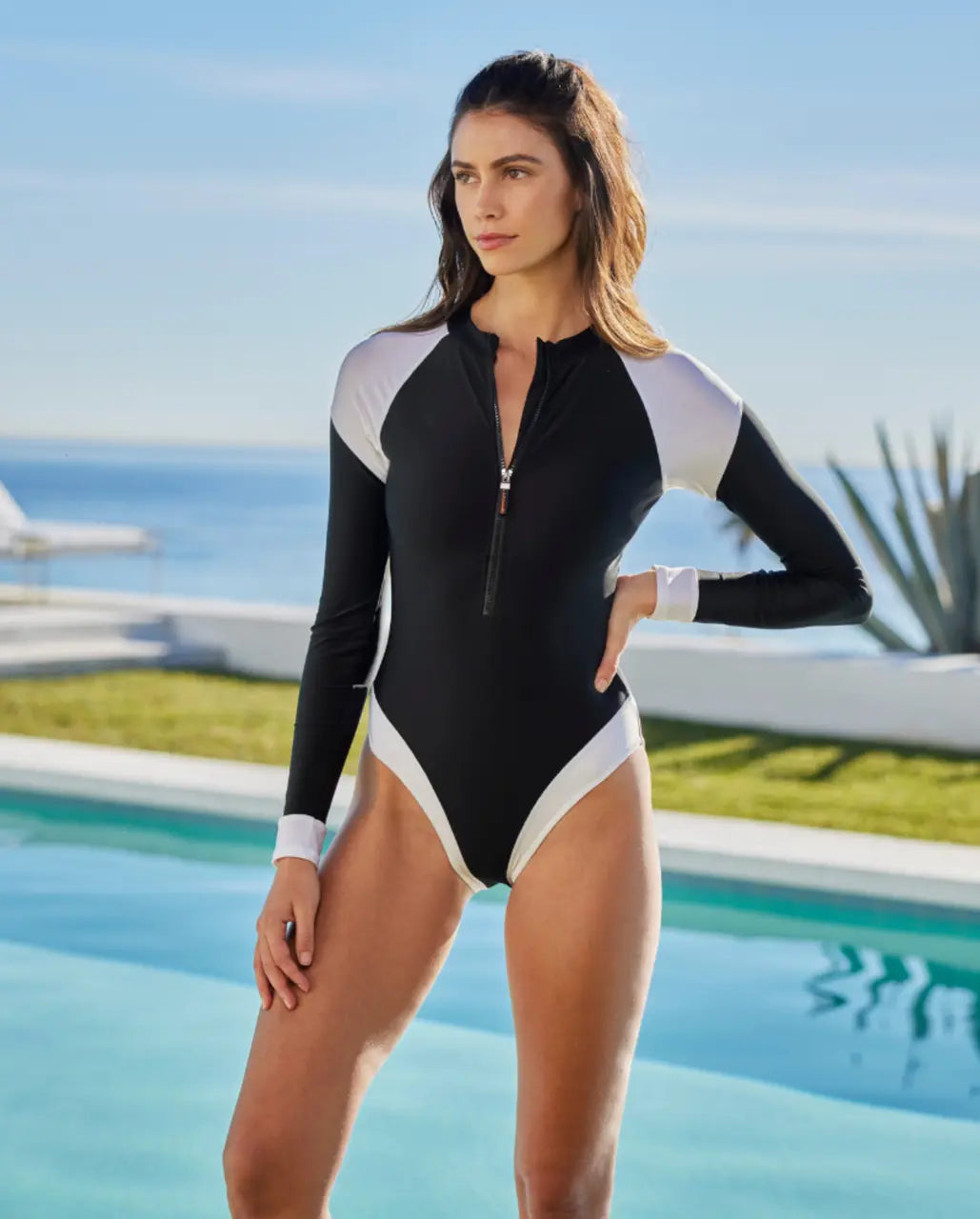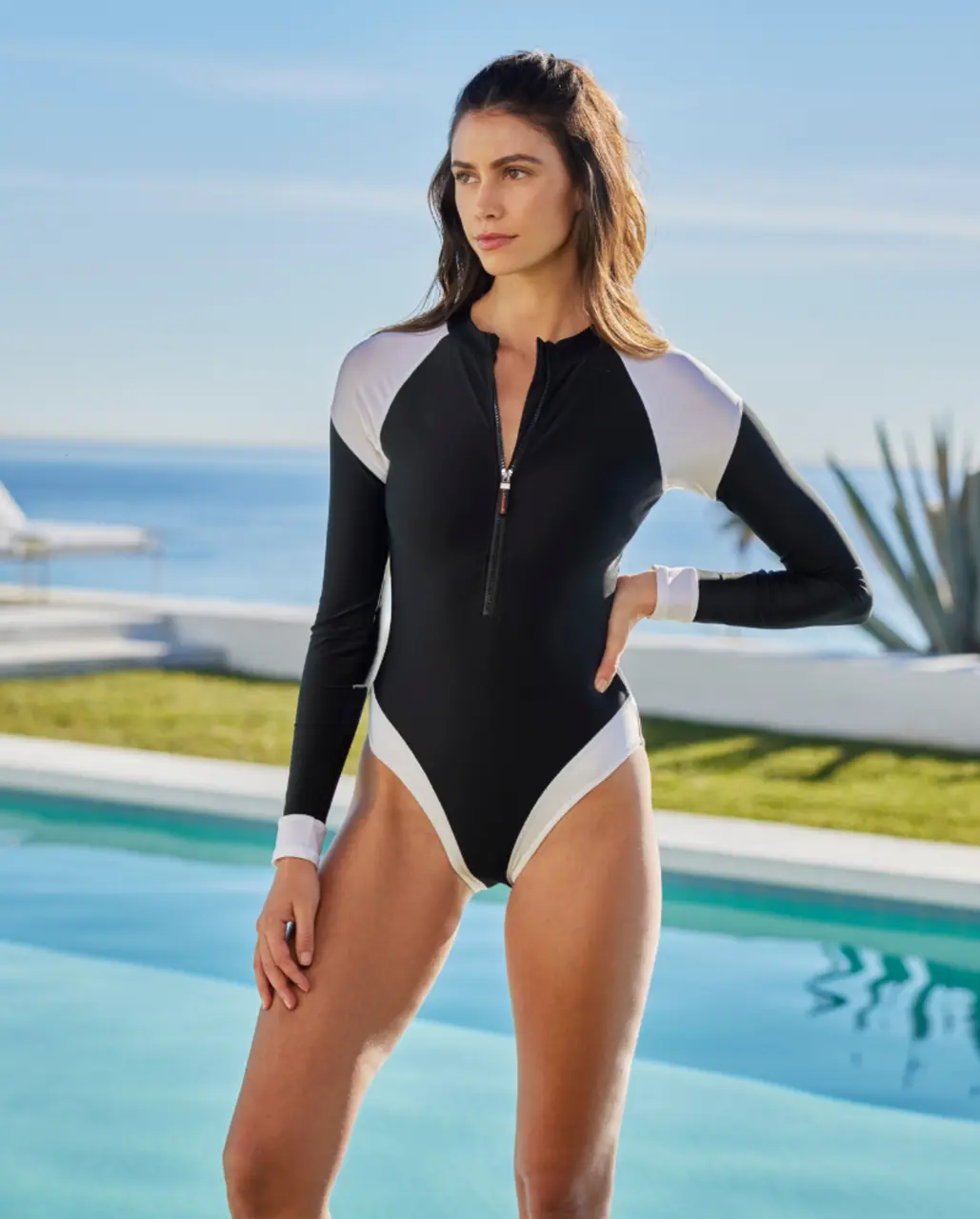When heading out to the beach or pool, sun protection is a top priority. Many people wonder if their swimwear, especially swim one pieces, can help shield them from the sun’s harmful rays. In this FAQ, we’ll dive into whether a swim one piece can offer sun protection and what you should look for when choosing one.
What is UV Protective Swimwear?
UV protective swimwear is designed to block out harmful UV rays from the sun, decreasing the risk of sunburn and long-term skin damage. These garments are often rated with a UPF (Ultraviolet Protection Factor), similar to the SPF rating found on sunscreens.
Unlike regular swimwear, UV protective swimwear has built-in sun protection that doesn’t wash away. For example, Coppersuit offers a range of Women’s Copper Infused Swimsuits with UPF 50+, which block up to 98% of harmful UVA and UVB rays.
Fabric and color also play a significant role in UV protection. Denser weaves and darker colors typically provide more protection. For instance, women’s long sleeve one piece swimsuits could offer better sun coverage due to their extended sleeve and darker fabric design.
How Does a Swim One Piece Provide Sun Protection?
A swim one piece offers sun protection primarily through its fabric and coverage. Fabrics treated with UV-blocking materials or tightly woven textiles can significantly reduce UV exposure. Additionally, the full coverage design of a one piece swimsuit protects larger areas of the body compared to bikinis or other swimwear options.
For instance, the Women’s Zip Front Rashguard One Piece Swimsuit from Coppersuit offers both style and protection. It combines the functionality of a rashguard with a one piece, offering excellent sun protection for the upper body and back.
It’s worth noting that swim one pieces can remain effective even when wet. Unlike sunscreen, which often needs reapplication, the UV protection in swimwear lasts throughout your day in the water. Many brands, like UV Skinz offer sun protective swimwear rated UPF 50+.
What Features to Look for in a UV Protective Swim One Piece?
When choosing a UV protective swim one piece, look for features such as a high UPF rating, long sleeves, and a high neckline. Also, consider the material’s quality; synthetic fabrics like nylon and polyester often provide better sun protection than natural fibers like cotton.
The Best Overall Surf Suit frequently combines functionality with style. Look for suits with high UPF ratings and convenient features such as front zippers for ease of use.
Comfort and flexibility are also key features. For example, Coppersuit’s swimwear is made from copper-infused fabric, offering a snug fit and additional benefits like anti-bacterial properties and odor resistance. Their range covers all your needs from style to protection.
Are There Limitations to Swim One Piece Sun Protection?
While a swim one piece can offer substantial sun protection, it does have limitations. Water exposure, stretching, and wear over time can reduce the effectiveness of the fabric’s UV protection. Moreover, uncovered areas like the face, ears, and lower legs remain vulnerable and need additional sun protection measures.
Certain suits may also have design limitations. For instance, suits with a lower neckline or high-cut legs, like some stylish Seea Valentina Surf Suits, though fashionable, expose more skin to UV rays and may be less effective in full sun protection.
Aside from fabric limitations, exposure to elements like sunscreen or chlorine can also diminish the suit’s protective capabilities over time. Hence, proper care and regular replacements of your swimwear are recommended.
Additional Sun Protection Tips
For comprehensive sun protection, combine your swim one piece with other measures such as applying broad-spectrum sunscreen, wearing a hat, and using sunglasses. Seeking shade during peak sun hours and reapplying sunscreen regularly can further enhance your protection against harmful UV rays.
Incorporating sun-safe swim accessories like rash guards and sunsuits can also provide additional coverage. Brands like SwimZip offer stylish options designed to provide ultimate sun protection for all-day outdoor fun.
Remember that combining protective clothing with sunscreen doesn’t just protect against sunburns but also helps maintain skin health. Board-certified dermatologist Dr. Dendy Engelman recommends seeking sun protective swimwear with UPF 30 or higher for optimal protection.
Final Thoughts
In conclusion, a swim one piece can indeed offer sun protection, but it’s crucial to check for key features such as UV ratings, fabric type, and coverage details. Pairing your swimwear with other sun-protection methods can help ensure you stay safe and enjoy your time in the sun while minimizing the risk of skin damage.



Leave a comment
This site is protected by hCaptcha and the hCaptcha Privacy Policy and Terms of Service apply.